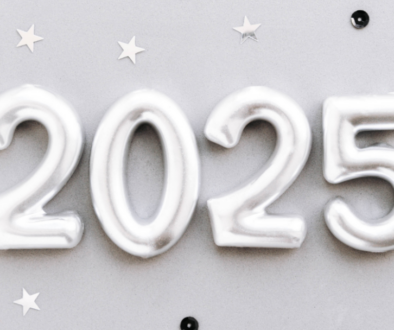What’s Your Dosha?
 According to Ayurveda, Yoga’s sister science, there are three Doshas: Vata, Pitta, and Kapha. Each of us has our own unique combination of these three, usually with one being more dominant. Here’s what’s interesting though, we translate Dosha as type or constitution. But the word Dosha actually means that which can become out of balance. A Dosha, therefore, is a weakness or an Achilles heel. If you’re going to have an issue mentally, physically, or emotionally, it’s going to show up in your dominant Dosha.
According to Ayurveda, Yoga’s sister science, there are three Doshas: Vata, Pitta, and Kapha. Each of us has our own unique combination of these three, usually with one being more dominant. Here’s what’s interesting though, we translate Dosha as type or constitution. But the word Dosha actually means that which can become out of balance. A Dosha, therefore, is a weakness or an Achilles heel. If you’re going to have an issue mentally, physically, or emotionally, it’s going to show up in your dominant Dosha.
You have 2 types of Doshas!
To make things more complicated, there are two types of Doshas you need to know: the one we’re born with that never changes called Prakruti (sometimes referred to as birth constitution) and the one that’s currently out of balance, called Vikruti. Those two may or may not be the same. You might be wondering how you could have a current Dosha that’s different from your birth Dosha. That happens because your energy is affected by everything: your age, the current season of the year, your diet, the exercise you do (or don’t do), the type of yoga and meditation you practice, the people you interact with, the media you consume, the hobbies you enjoy, where you live, your lifestyle, and your habits.
When using Ayurvedic tools to improve health, longevity, and well-being, the first step is to address what’s currently out of balance (Vikruti). Once you’ve done that, the goal is to live in accordance with your birth Dosha (Prakruti). It’s also important to live in harmony with the seasons. These seasonal changes are called Ritucharya (seasonal routine).
Understanding the two different types of Doshas is crucial if you’re taking a Dosha quiz to determine your constitution. You have to decided if you’re answering based on what’s true right now (current Dosha) or what’s typically true for you (birth constitution). Keep reading to learn a better way!
What’s your Dosha? (Prakruti or birth constitution)
Current Doshic imbalances are typically seen as health issues or mental/emotional changes, while your physical body type remains unchanged. Because of this, you can use your body type to determine your birth constitution. Here are physical descriptions for each Dosha.
Vata
Tend to be thin, hard-gainers, could be tall or short, long limbs, bony features, protruding joints, small eyes, thin lips, tend toward tight muscles, weak nails
Pitta
Medium or athletic build, good muscle definition, average height, good flexibility, can lose or gain weight with right effort, moles and freckles, healthy pink nails, medium sized eyes
Kapha
Broad frame, “big-boned,” could be short or tall, heavy, naturally strong, solid, sturdy, good balance, thick hair, thick neck, thick limbs, large round eyes, large features, big mouth, strong thick nails
What’s your Dosha? (Vikruti or current constitution)
Dosha quizes can be confusing (are you answering for right now or what’s typical and it’s difficult to be objective). Instead, make a list of your current complaints, health issues, or what you’d like to see improved. Then, look at signs of imbalances for each Dosha. If you see the majority of your issues fall under one Dosha, that’s your current Dosha. Here are some imbalances for each Dosha.
Vata
Arthritis, Low BP, joint pain, stiff muscles, lack of flexibility, insomnia, constipation, dizziness, ringing in the ears, gas and bloating, dry/flaky dandruff, chronic fatigue, low back pain, intolerance to cold, restlessness, overactive mind, anxiety, impulsive spending, spacey or zoned out, disorganized, poor planner, lack of confidence, procrastination, fast talker, breathlessness, impatient, ADHD/ADD, OCD
Pitta
Acid reflux, heart burn, ulcers, rashes, psoriasis, inflammation, redness, diarrhea, liver issues, canker sores, excessive thirst/hunger, dry/flaky dandruff, hemorrhoids, red eyes, infections, intolerance to heat/humidity, overly intense, overly competitive, stubborn, angry, jealous, materialistic, aggressive, controlling, manipulative, demeaning, critical, judgemental, egotistical, overbearing, suppression of emotion, likes to be center of attention, can become overzealous even in their self-healing
Kapha
Obesity, diabetes, colds/flu, yeast conditions, sinus issues, congestion, excessive phlegm/mucus, lymphatic issues, edema, water retention, excessive sleep, oily dandruff, asthma, low thyroid, intolerance to cold/dampness, greedy, hoarding, unchanging, set in ways, unable to say no, people-pleasing, gets easily attached to things/people, gets taken advantage of, takes on others’ problems, fearful of letting go, passive, lethargic, gives up easy, slow to understand/grasp concepts, depressed mood, introverted, compliant, difficulty expressing emotions/thoughts, unlikely to realize they have a problem
Now that you’ve checked the physical descriptions and the signs of imbalance for each, what’s your Dosha, Prakruti (birth constitution) and Vikruti (current)?
To learn more about Ayurveda, the Doshas, and how to heal naturally, check out Eat, Taste, Heal: An Ayurvedic Cookbook for Modern Living. While it calls itself a cookbook, it’s half recipes, half information. It’s a great resource!
This post contains affiliate links.



